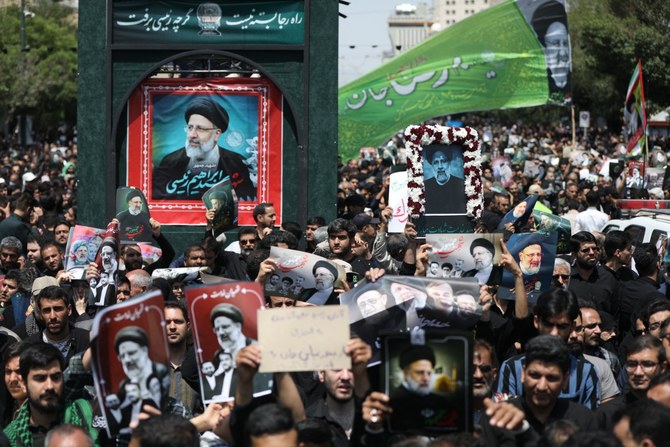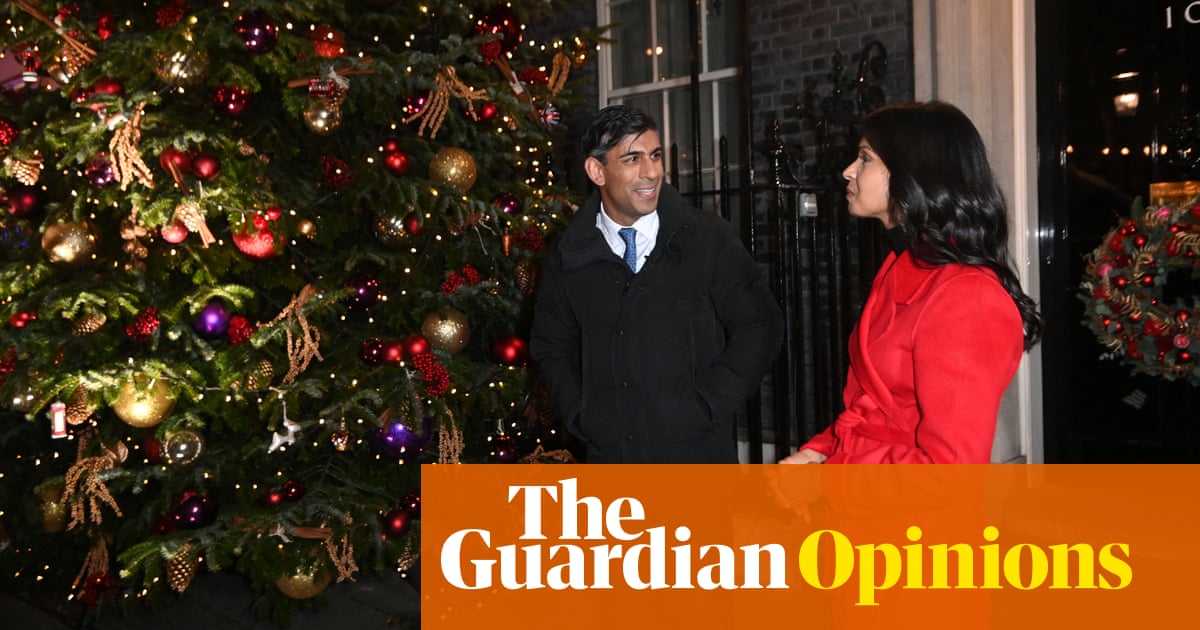
President Ebrahim Raisi’s sudden death last week illustrated how hollowed-out at the top the Islamic Republic had become. It is not just that the list of those slated to replace him looks starkly feeble, but also that many believed that the complex shenanigans for elevating the unpopular Raisi to the presidency in 2021 marked him out as a likely shoo-in as supreme leader after Ayatollah Ali Khamenei’s long-anticipated passing.
This leaves the latter’s son, Mojtaba Khamenei, as the most widely talked-about next supreme leader — an unaccountable, hereditary succession that would undercut the ayatollahs’ arguments for deposing the shah’s monarchy in the first place. Mojtaba is a shadowy figure, known for enforcing his father’s agenda and managing his sprawling financial empire from behind the scenes. “The winner from Raisi’s death is Mojtaba,” said a former Iranian minister.
The incompetent spectacle around Raisi’s death — with professional rescue teams struggling to be allowed access amid a clumsy media crackdown — sparked a firestorm of conspiracy theories among Iranians over whether his death was an inside job. Vladimir Putin was unable to resist remarking that the two accompanying helicopters that survived the incident were Russian-made. Only the aging American craft crashed.
Online posts compared the supreme leader’s stoic demeanor at the funeral of Raisi and Foreign Minister Hossein Amir-Abdollahian with his uncontrollable sobbing at the 2020 memorial for Qassem Soleimani, along with the conspicuous failure to accord Raisi the epithet of “ayatollah” in Khamenei’s perfunctory eulogy, which paid far more attention to events in Gaza. “The administration of the country will not be disrupted at all,” was Khamenei’s dismissive assessment of the impact of Raisi’s absence.
There were widespread reports of fireworks parties and Iranians celebrating behind closed doors
Baria Alamuddin
What sort of regime sends their president and foreign minister up in a 50-year-old helicopter, through remote and treacherous mountains in dense fog, without any sort of security protocols — at a time of heightened threats from Israel and other enemies? What sort of regime then takes 17 hours to find its missing president using chaotic ad hoc search parties? A state that bankrolls its paramilitary activities through selling military drones to Russia had to humiliatingly beg Turkiye for a spare drone with which to locate its lost leader.
There were widespread reports of fireworks parties and Iranians celebrating behind closed doors. Among older generations, Raisi is best known for dispatching thousands of political prisoners to their deaths in the 1980s. Among a younger generation, Raisi is associated with the 2022 hijab crackdowns and widespread killings, detentions, torture and rape in the aftermath of Mahsa Amini’s brutal death. As one commentator noted, Raisi’s ascent to the presidency “was not a function of any discernible charisma or political skill,” but rather “mindless loyalty to the ruling system” and “a track record of unhesitating brutality.”
How Khamenei stage manages the upcoming presidential elections will speak volumes about how the country’s leadership is to be configured. If he desires to impose his own choice and banish all other candidates, that will seriously depress voter turnout, while reminding Iranians that their only prospects for actual change are through vigorously dismantling the entire system. Conversely, Khamenei’s occasional past allowance of candidates from the reformist fringes could at least offer a veneer of legitimacy at a critical moment.
Few Iranians will feel motivated to vote for hard-liner establishment candidates like caretaker president Mohammed Mokhber or previous failed candidate Saeed Jalili. Weaker figures in the positions of supreme leader and president would further empower the Revolutionary Guards, auguring a military dictatorship and more overseas aggression.
The succession of “Islamic resistance” warlords paying their respects at Raisi’s funeral served as a reminder of Tehran’s regional mafioso role. They included Hamas’ Ismael Haniyeh, Hezbollah’s Naim Qassem and representatives from the Houthis and Palestinian Islamic Jihad, while some notorious underlings like Bashar Assad and several Iraqi paramilitary leaders were conspicuously absent.
The Arab world will be closely gauging whether the incoming regime will be more or less confrontational
Baria Alamuddin
As well as Iran’s regional proxies upping their attacks on Israeli and Western targets in recent weeks, the ayatollahs have continued to accelerate their nuclear activities toward the threshold of being capable of deploying atomic weapons. Soaring regional tensions and domestic uncertainties may indeed prompt Iran’s theocracy to make the final dash toward nuclear breakout. “We have no decision to build a nuclear bomb but should Iran’s existence be threatened, there will be no choice but to change our military doctrine,” Kamal Kharazi, an adviser to Khamenei, warned this month.
With Iran such a significant piece in the regional jigsaw, the Arab world will be closely gauging whether the incoming regime will be more or less confrontational. The presence of several senior figures from a number of Arab states at Raisi’s funeral hence sent an important message about how Iran, if it were to put aside overseas warmongering, could enjoy a transformed relationship with its neighbors.
Given that Iran’s incoming leaders are predicted to be weak, unpopular figures, one of the smartest things they could do for the sake of the regime’s survival would be to decisively mend fences with neighboring states and demobilize transnational paramilitaries, while defanging their nuclear program and stepping back from the brink of triggering a futile and ruinously destructive war.
Iran is blessed with millennia of cultural heritage, a youthful population and immense resources. The only factor holding it back is its dire leadership. The ayatollahs’ tyranny has never looked more fragile — affording millions of Iranians hope that these accumulating symptoms of regime disintegration herald the beginning of the end of their hated theocratic dictatorship.
Baria Alamuddin is an award-winning journalist and broadcaster in the Middle East and the UK. She is editor of the Media Services Syndicate and has interviewed numerous heads of state.












